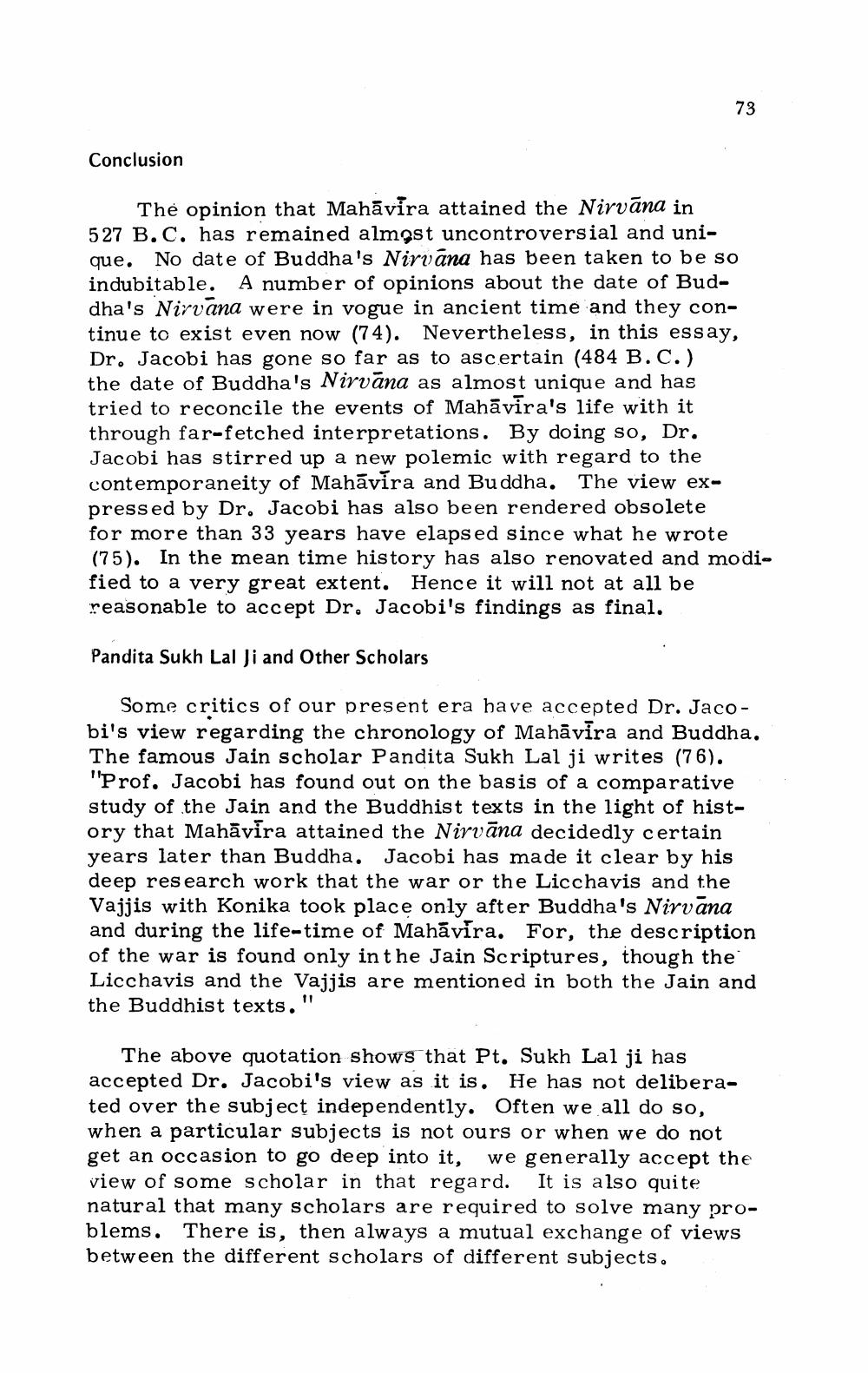________________
73
Conclusion
The opinion that Mahavira attained the Nirvana in 527 B.C. has remained almost uncontroversial and unique. No date of Buddha's Nirvana has been taken to be so indubitable. A number of opinions about the date of Buddha's Nirvana were in vogue in ancient time and they continue to exist even now (74). Nevertheless, in this essay, Dr. Jacobi has gone so far as to ascertain (484 B.C.) the date of Buddha's Nirvana as almost unique and has tried to reconcile the events of Mahāvira's life with it through far-fetched interpretations. By doing so, Dr. Jacobi has stirred up a new polemic with regard to the contemporaneity of Mahāyira and Buddha. The view expressed by Dr. Jacobi has also been rendered obsolete for more than 33 years have elapsed since what he wrote (75). In the mean time history has also renovated and modified to a very great extent. Hence it will not at all be reasonable to accept Dr. Jacobi's findings as final.
Pandita Sukh Lal Ji and Other Scholars
Some critics of our present era have accepted Dr. Jacobi's view regarding the chronology of Mahavira and Buddha. The famous Jain scholar Pandita Sukh Lal ji writes (76). "Prof. Jacobi has found out on the basis of a comparative study of the Jain and the Buddhist texts in the light of history that Mahāvira attained the Nirvana decidedly certain years later than Buddha. Jacobi has made it clear by his deep research work that the war or the Licchavis and the Vajjis with Konika took place only after Buddha's Nirvana and during the life-time of Mahāvira. For, the description of the war is found only in the Jain Scriptures, though the Licchavis and the Vajjis are mentioned in both the Jain and the Buddhist texts."
The above quotation shows that Pt. Sukh Lal ji has accepted Dr. Jacobi's view as it is. He has not deliberated over the subject independently. Often we all do so, when a particular subjects is not ours or when we do not get an occasion to go deep into it, we generally accept the view of some scholar in that regard. It is also quite natural that many scholars are required to solve many problems. There is, then always a mutual exchange of views between the different scholars of different subjects.




